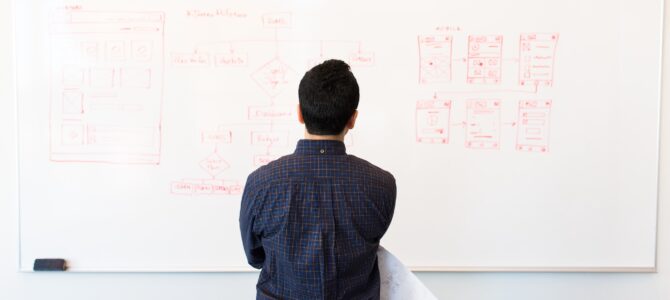In the previous blog post in this series I talked about the fear of the unknown. When you are afraid of what could happen if you make changes, you end up being stuck without positive growth. You end up trying to control the future and all possible outcomes (which is impossible). This need to control the future carries over into trying to control all aspects of your life.
Deeper rooted fear, like fear of the unknown and fear of losing control, keeps you in the future. You try to control things outside of your ability – all possible outcomes and other people’s reactions.
Trying to Hold onto Control Leads to Loss of Control
People often hold onto control because they think it’s a way to reduce their anxiety. You don’t want someone to react a certain way because it makes you more anxious, so you do things to try to control their behavior. But what happens when they don’t react the way you expected? You feel out of control. When you are late for work it makes you anxious, so you have a rigid, inflexible routine in the morning that doesn’t allow for anything unexpected or out of the ordinary to happen. But what happens if there is unexpected construction on your route that causes a traffic jam? You feel out of control.
Trying to hold onto control does the opposite of reducing anxiety. Things beyond our control happen whether we like it or not. When you realize you don’t have control, you try to grab on more, increasing your anxiety rather than reducing it. If you try to control others, you’ll find that you can’t control them, which leads to less control of your own feelings. You lose the ability to be flexible, cope with change, or go with the flow. You spiral because of that inability to control others and everything around you, and as you try to hold onto more control, that leads to self-induced anxiety. The past, the future, and other people are out of your control and will never be in your control. You have to have a willingness to accept that.
Radical Acceptance to Reduce Anxiety
When you feel out of control, stand back. What is actually in your control? Don’t think about the “what ifs” of the future. Don’t make up imaginary scenarios that may or may not play out. What is right now in your control? What is your role in the situation and what can you contribute? It’s the idea of radical acceptance of what your abilities are. Recognize your own contribution to relationships and your life, and let go of what you can’t control.
If you strategically let go of control (of the things, situations, and people you can’t control), and are selective with what you can control (your own behaviors, attitudes, and thoughts), you can start to reduce your anxiety. It may sound counterintuitive, but when you let go of control, you actually gain more control of what you really can control.
Learning what you can and cannot control helps you be more sound and stable in decision making. You learn to listen to and rely on yourself more and your own intuition, and not expect too much from others or the world. You learn to be more present without worrying about the future. Letting go of control leads to greater inner peace, relief, letting go of burdens, and reducing anxiety.
Let Go of Fear!
Trying to Avoid Discomfort
Fear of the unknown, loss of control, and being judged are all about avoiding discomfort. But when those fears take over, they feed into anxiety instead of making you feel better or finding inner peace. Working on letting go of your fear of all three helps reduce anxiety, minimize procrastination, and achieve your goals. While those fears can be useful if they’re based on a present reality, don’t let them consume you. Acknowledge that they’ll exist no matter what, and then use them strategically to inform decision making to improve your life.
Mindfulness
It’s possible to overcome the fear of the unknown, loss of control, and being judged (not the unknown, loss of control, and judgment themselves) by practicing mindfulness. Those things will exist, but like I said before, they don’t have to win. Look inward – what are your values and priorities? Are your fears aligned with them? Are your fears holding you back from reaching your goals? Or are they helping you reach your goals? Often fear prevents you from making positive changes and living the life you want. Mindfulness teaches you to be present, stay in the moment, and be in tune with your inner wisdom. Through mindfulness, you’ll learn to become more in touch with your needs so your actions can align with them. Stop worrying about the “what ifs” and the future, and start focusing on yourself, exactly as you are, in this present moment.
Find Inner Peace
If you are afraid of being judged, focusing on the future “what ifs,” or losing control, therapy can help you learn how to be mindful so you can reduce your anxiety, trust yourself, and have the life you want. If you live in New York or Florida, Dr. Heather Violante offers online therapy so you can feel better and find inner peace.

